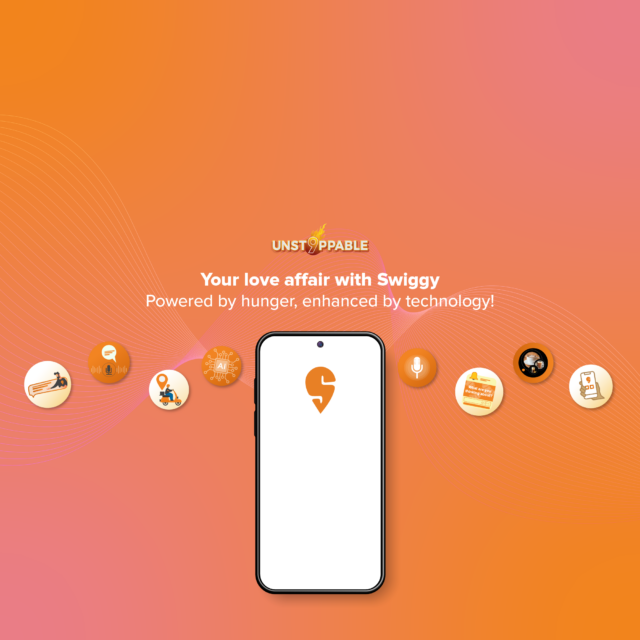Swiggy and Zomato, two of India’s leading food and grocery delivery giants, are now reaching beyond their original goals, testing new services to meet the needs of a changing market. In their quest for long-term growth and greater customer engagement, these platforms offer unique services, from booking professional consultations to exclusive memberships and handyman assistance.
With Swiggy’s public listing on the horizon, both companies are positioning themselves to capture a greater share of India’s booming digital market. Here’s a look at how these ventures could shape the future of these companies and impact customer experiences.
Swiggy’s ‘Yello’ Marketplace
Swiggy is testing a unique concept called ‘Yello,’ which aims to serve as a marketplace for professional services beyond just food. From consultations with dieticians and therapists to sessions with astrologers and fitness trainers, Yello is designed to be a one-stop platform for users seeking expert services.
Swiggy hopes to make Yello either a part of its main app or a separate platform, bringing convenience to customers who prefer a centralised experience.

“India has seen a rapid shift towards digital platforms for professional services, but there is still a gap for a single, reliable provider of verified professionals,” explains Anurag Mathur, CEO of Bain & Company India.
According to a report by Statista, India’s online service market is expected to grow by 11.5% annually, reaching a revenue of $8.6 billion by 2026. If successful, Yello could help Swiggy carve out a slice of this rapidly growing market, transforming how Indians access professional services.
The ‘Rare’ Experience
Swiggy is also introducing ‘Rare,’ a premium membership plan targeting affluent customers who seek exclusive experiences. The membership promises benefits like priority restaurant bookings, access to exclusive events, and curated experiences for members. This is Swiggy’s way of catering to high-value customers who are willing to pay for a luxury dining and event access experience.
A recent consumer study by RedSeer Consulting reveals that India’s premium dining market is expanding by 15% annually, with more consumers seeking unique, high-end experiences.
“Swiggy’s move to enter premium segments is in line with a global shift where digital service providers are increasingly targeting affluent customers with unique, high-value offerings,” shares Ujjwal Chaudhry, Partner at RedSeer Consulting.
Tapping into this trend could provide Swiggy a significant revenue boost, offering services not typically associated with food delivery platforms.
Humanising Digital Interactions
Meanwhile, Zomato has been working on a concierge service that lets customers place orders via WhatsApp, assisted by human agents rather than bots. This service, already in its hiring phase, aims to provide users with a more personalised ordering experience, particularly helpful for users unfamiliar with mobile apps or those who prefer human interaction over automated systems.
The demand for personalised customer service is high in India; as per a report by KPMG, 75% of consumers feel more loyal to brands that provide humanised service. Rohan Agarwal, Associate Partner at Kearney India, highlights, “Services that prioritise human interaction can drive loyalty, especially in a market where users highly value personalied attention.”
By using WhatsApp, a widely accessible platform, Zomato is likely to make food ordering even more inclusive, establishing a new benchmark for customer experience in the sector.
Also Read: Aswath Damodaran Discusses If Swiggy’s IPO Is A Good Investment In Podcast
Event Ticketing And Handyman Services
Zomato is also moving into event ticketing and handyman services. With its acquisition of Paytm’s event and ticketing business for ₹2,048 crore, Zomato is preparing to compete with entertainment ticketing giants.
This expansion positions the company within a different industry, allowing users to book events, shows, and experiences through the Zomato app, which could add a significant revenue stream.
Additionally, Zomato’s Blinkit division is venturing into handyman services like plumbing and home repairs, positioning it as a competitor to Urban Company, an established service provider in India.
“Zomato is betting on diversification to create a broad-based consumer ecosystem,” says Devangshu Dutta, CEO of Third Eyesight, a consulting firm focused on consumer industries. Zomato’s move into this sector comes at a time when the online home services market in India is expected to reach $4 billion by 2025, according to a report by RedSeer Consulting.
The 10-Minute Delivery Race Heats Up
Both Swiggy and Zomato are competing head-to-head in the quick commerce market, which delivers essentials to customers in under 10 minutes. Swiggy recently launched Bolt, a service promising 10-minute delivery from local restaurants.
Zomato, leveraging its acquisition of Blinkit, has also strengthened its ultra-fast delivery offerings, reflecting a rapid shift in consumer expectations for convenience.
“With the global quick-commerce industry expected to grow at a compound annual growth rate of 27.5%, the demand for faster delivery services is undeniable,” notes Siddharth Jain, Director at Deloitte India.
In India, ultra-fast delivery platforms are becoming the norm, with RedSeer Consulting estimating that the market will be worth $5 billion by 2025. Swiggy and Zomato’s entry into this space signals an accelerated transformation in consumer habits, catering to the growing demand for immediate service.
The Future Of On-Demand Services
Swiggy and Zomato’s recent moves reflect a broader trend of tech platforms evolving to meet multiple needs in one place. These expansions signal a transformation from single-service apps to multifunctional platforms capable of catering to diverse requirements. As more consumers turn to digital solutions, the demand for such consolidated services will likely increase, creating a lasting impact on India’s digital economy.
For users, these services promise a future where everything, from ordering food and booking appointments to event planning and handyman services, can be managed through one or two apps.
Swiggy and Zomato’s innovative steps indicate a potential for new job opportunities in sectors like logistics, customer service, and professional consultancy, shaping the gig economy and impacting India’s employment landscape.
Swiggy and Zomato’s efforts to diversify their portfolios mark an exciting shift in India’s on-demand service industry. By broadening their offerings beyond food and groceries, both companies are poised to play central roles in India’s digital evolution. For consumers, these new services mean greater convenience and accessibility. And for the market, Swiggy and Zomato’s ventures could set a benchmark, turning digital service apps into multifunctional hubs that seamlessly integrate into daily life.
Image Credits: Google Images
Sources: Times of India, Economic Times, Hindustan Times
Find the blogger: Katyayani Joshi
This post is tagged under: Swiggy, Zomato, food delivery, quick commerce, Indian startups, Yello, Rare membership, Blinkit, event ticketing, online services, digital transformation, Indian economy, customer experience, tech innovation, gig economy, Swiggy IPO, hyperlocal delivery, Indian consumers, on-demand services, startup news, service marketplace, business growth, digital ecosystem, professional services, premium memberships, ultra fast delivery
Disclaimer: We do not hold any right, copyright over any of the images used, these have been taken from Google. In case of credits or removal, the owner may kindly mail us.
Other Recommendations:
India’s Biggest Retailers Demand Action Against Zepto, Blinkit, and Swiggy




































